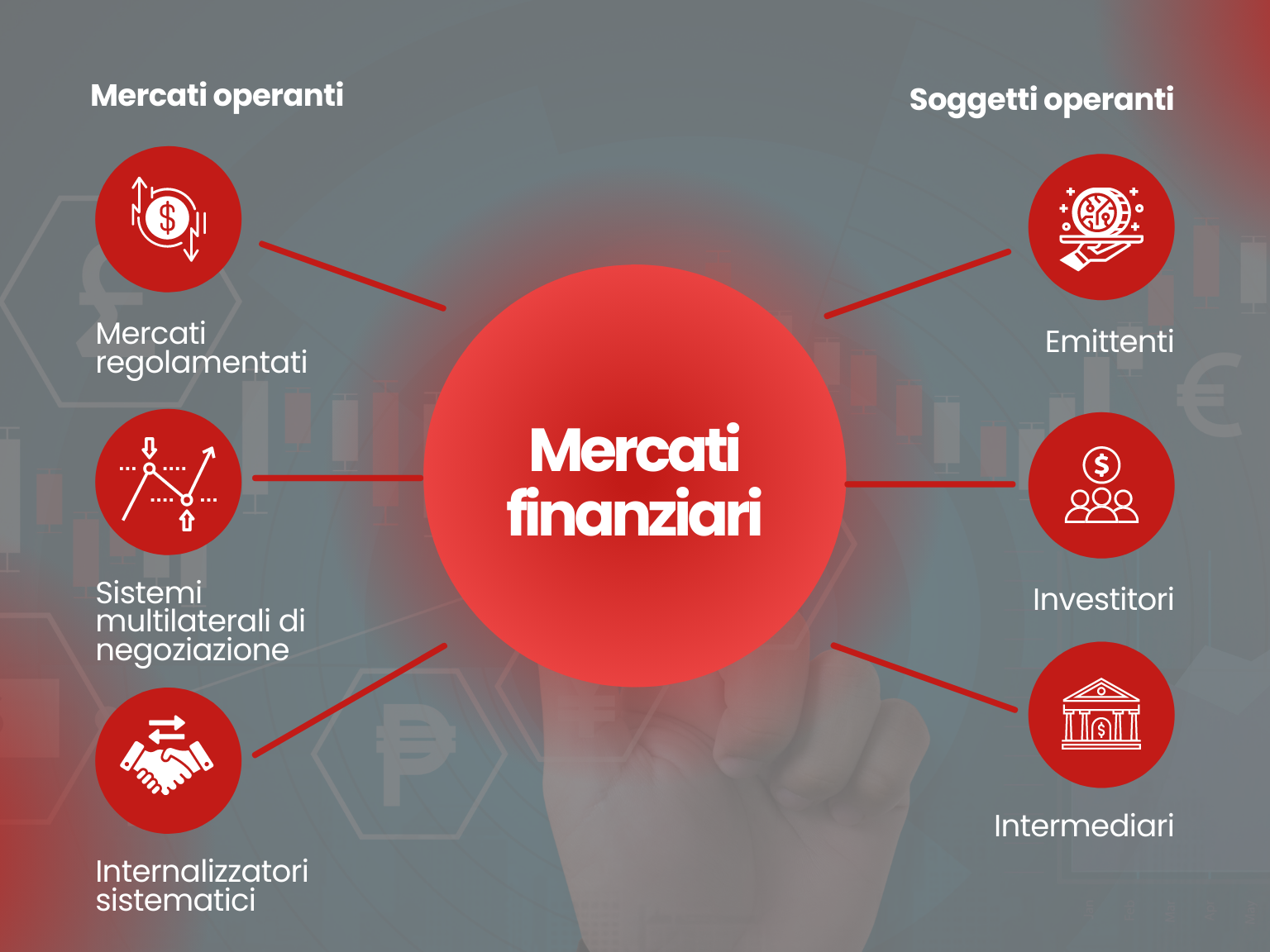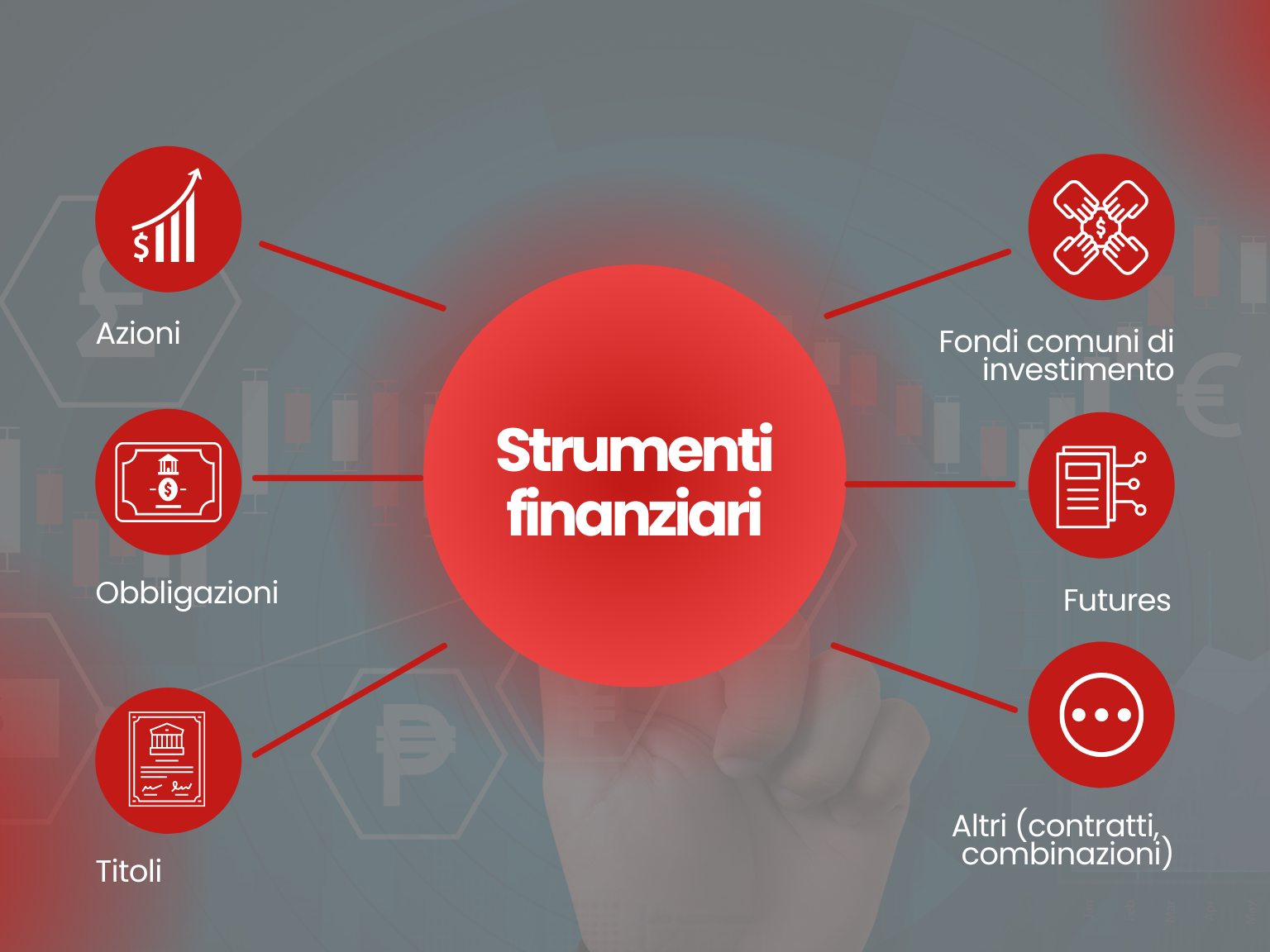
What are Financial Markets and how do they work?
They rise, fall, influence the economy and are now firmly at the center of the news in newspapers and television news: in other words, the financial markets affect our daily life. Their origin dates back to several years ago, but their constant evolution makes them different every day from the previous one.
Financial markets are spaces where the purchase and sale of various financial instruments such as shares, bonds, derivatives and more is authorized and possible.
For some time now, financial markets have no longer been physical places, but computer platforms called "trading venues". Within them, the sale and purchase proposals intersect.
The 3 types of markets operating in Italy
There are three types of financial markets operating in Italy:
- Regulated Markets
- Multilateral trading facilities (MTF)
- Systematic internalizers
Regulated markets are systems where the purchase and sale proposals of financial assets are entered by several intermediaries, either independently or on behalf of third parties. An important aspect is the extent of the information made available by investors regarding:
- the issuer: his financial situation, the relevant facts concerning him, the major shareholders, the persons who exercise control over the company;
- Financial instruments traded: significant short sales of shares, shares purchased or sold by the Top Management of the issuers.
Multilateral trading facilities (MTFs) are similar to regulated markets but the substantial difference is that they can also be managed by Banks or SIMs, with the proviso that they are authorized parties.
Finally, there are the systematic internalisers, mostly made up of Banks authorized to provide the investment and trading service of financial assets on their own account and which execute the client's orders. So outside a regulated market or an MTF.

The 3 types of subjects present in the financial markets
Within the financial markets there are 3 different types of operating subjects:
- Issuers: are those subjects who, for the financing of their activities, issue financial instruments suitable for circulation and therefore to be exchanged on a market. Enterprises organized in the form of joint stock companies, public bodies and the State are the most important issuers of financial instruments;
- Investors: they are the subjects who go to the market to find and carry out the purchase and sale of financial instruments;
- Intermediaries: they have the task of facilitating the meeting between issuers and investors, favoring the transformation of savings into productive investments. The banking activity of granting credit to businesses and households is the best known financial intermediation function today. At the basis of this activity is the important work of collecting and managing information relating to the state of the economy as a whole and to the financial solidity and expected future profitability of the subjects applying for credit.
What is meant by financial instruments?
As we have said, financial markets are where financial instruments are traded.
Financial instruments are essentially contracts relating to rights and provision of services of a financial nature and are divided into:
- shares and other equity securities negotiable on the capital market;
- bonds, government securities and other debt securities negotiable on the capital market;
- shares of mutual funds;
- securities normally traded on the money market;
- any other normally negotiated security that allows for the acquisition of the instruments indicated above;
- futures contracts on financial instruments, interest rates, currencies, commodities and related indices;
- spot and forward swaps on interest rates, currencies, commodities as well as equity swaps;
- forward contracts linked to financial instruments, interest rates, currencies, commodities and related indices;
- option contracts to buy or sell the instruments indicated in the previous letters and related indices, as well as option contracts on currencies, interest rates, commodities and related indices;
- the combinations of contracts or securities indicated above.

Means of payment such as bank cheques, cash, credit cards and current accounts are not considered financial instruments.
These contracts may allow the transfer of:
- Financial resources between a creditor and a debtor, generally between the issuer and the investor;
- Financial risks, between different parties.
The former include, for example, Bonds, instruments with which the issuer collects debt capital from investors, generally recognizing periodic interest, coupons, and the repayment of capital at maturity.
While in the latter the Derivatives, instruments with which, for example, the counterparties in a commercial transaction can regulate a certain future risk such as, for example, the change in the price of the asset involved in the transaction.



